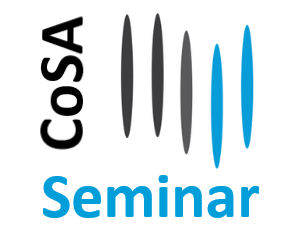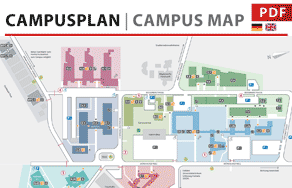hiermit laden wir zum 106. CoSA-Seminar am Montag dem 20.10.2025 um 11:45 Uhr ein. Das CoSA-Seminar findet in Präsenz im Raum 18-02.16 statt.
Wir haben folgende Vorträge geplant:
- Finja Wegner: Accessible Binary Interaction Techniques in Panoramic Virtual Reality Applications for Users with Motor Impairments
- Marcel Scheel: Design and Evaluation of CNN-Based versus Statistical, Neural Network NLOS Detection in UWB Systems
Die Vorträge dauern ca. 20 Minuten mit anschließend 10 Minuten Diskussion. Wir freuen uns auf eine rege und aktive Teilnahme.
Finja Wegner: Accessible Binary Interaction Techniques in Panoramic Virtual Reality Applications for Users with Motor Impairments
The paper presents two binary interaction techniques for panoramic virtual reality applications, based on scanning methods common for 2D user interfaces: Automatic Item Scanning (AIS) and Continuous Cartesian Scanning (CCS). These allow users with motor impairments to interact with only one degree of freedom. Following a pre-study, both techniques were refined and evaluated in a user study. The study assessed interaction performance, usability, user experience, and motion sickness. The results showed no statistically significant differences across most metrics, except for interaction time, where AIS was significantly faster. Both techniques displayed particular limitations. CCS exhibited errors when switching between the two interaction modes for selection and navigation. AIS was mostly affected by timing errors and a rigid scan sequence. The comparison with the pre-study highlights the importance of perceived control, self-efficacy, and customizable interaction parameters. Despite these limitations, both approaches demonstrate potential for the development of accessible panoramic VR interaction techniques.
Marcel Scheel: Design and Evaluation of CNN-Based versus Statistical, Neural Network NLOS Detection in UWB Systems
Precise distance estimation using Ultra-Wideband (UWB) for indoor localization systems is challenged by non- line-of-sight (NLOS) conditions. NLOS conditions caused by obstruction of the direct propagation path result in overestimation of the distance between sensors or erroneous angle of arrival measurements and finally result in localization errors. Therefore, reliable NLOS detection is fundamental to identify these errors and ensure robust position estimation. This work introduces a detection approach for UWB signals analyzed by a one- dimensional convolutional neural network (1D-CNN). The 1D- CNN uses the UWB received signals as input and automatically learns the relevant features, enabling more robust NLOS detection than other approaches. We compare our approach with two state- of-the-art detection algorithms: First, a statistical approach based on eight weighted features and thresholding; secondly, a feature- based neural network using the same features. This comparison provides a fair baseline for evaluating the advantages of our proposed method. We evaluate the NLOS detection performance with real measurements on a popular UWB hardware with a Decawave DW1000 chip. The effectiveness of the NLOS detection shows a 99.91% detection ratio compared to 60.81% for the statistical approach and 95.58% for the feature-based neural network approach.


